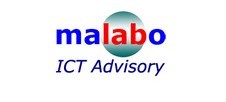
In an increasingly interconnected and digitalized world, the Informatic System (IS, or IT) of the Company/Institution, regardless of its size and its industry sector, has a vital role in supporting all activities minute-by-minute, as well as all processes and personel: this is the reason why it's more connected and more vulnerable to attack, being connected via Internet to the globe.
IS is at the core of Company/Institution, which enables its internal operation and the relations with its interlocutors: therefore, it must be sistematically and continuosly managed and governed. It's necessary to differentiate and clarify these two terms, too often mistakenly considered sinonymys.
The IS Governance has a strategic value, which must be clearly distinguished from its management, having a mainly operative value.
In the current world and digital economy, ICT governance and ICT management are related and fundamental aspects for every modern IS, which also affect medium and small companies and organizations: it's part of the more general "Enterprise Governance" and has close relations with, on one hand, the Business Process Management (and therefore with the Business Activity Monitoring and Business Pricess Redesign-Rengineering), on the other hand with ICT Architecture of Information Systems (see the specific area of competence clicking here.
The effective and efficient implementation of ICT Governance and its operative Management are some of the top specializations of Malabo Srl, thanks to the wide experience gained over the years on these issues by older professionals operating in Malabo (for more details, click here). This implementation is integrated and refers to ICT Architecture of Information System and to its evolution plan, aligned to the evolution of business and to strategic plan of Company/Institution.
Malabo interventions are based on a pragmatic and contextualized use of consolidate standards and best practices worlwide which include:
a) strategically predominantly:
- COBIT version 2019;
- BSC, Balance Scorecard
Malabo has developed some consolidated Best Practices on ICT Governance aligned to Governance of Company/Institution, with a very pragmatic modus operandi and able to achieve in a short time the first mesearuble results.
b) at operational level predominantly:
- ITIL 2013 (v.3) and the new ITIL v.4, which has deeply modified logics and approaches of previous and well-established versions;
- NIST SP 800.
Regarding to the IS operational managament, Malabo provides GOSI service.
All methods are in turn customized and contextualized on the specific requirements of the customer and are supported by IT tools which include (click on the acronym of tool/service to access the specifc web page):
1) detection and management systems of all ICT resources of Information System, including fixer or mobile user devices, server on premise or outsourced in housing/hosting and cloud services: ICTAssetM
2) function monitoring, functionality and performance's control of ICT resources: SLA Watch
3) ISMS, Information Security Management System: from those identified in an intervention/project of digital security (see here) to SOC
4) providing support to users through help/service desk and troubleticketing: TT-HD
5) documentation and management systems of ICT EA, Enterprise Architecture, with their associated policies, in addition to the definition, implementation and monitoring of ICT EA effective implementation: see here;
6) systems for ICT vulnerability and risk analysis: AVULlCT e ARICT;
7) balanced scorecard for the management of EA multi-annual implementation and development plans, including their impact on final users.
Complementary but essential services for the IS governance and/or management are:
- the planning of IS organizational structures, staff and users skills: ACROICT and training course.
ICT value analysis is an issue which these best practices fit ICT governance. A simple but effective and inexpensive method of "guided self-assessment" has been developed (with the assistance of Malabo specialists), based on a spreadsheet, in order to obtain a qualitative and quantitative evaluation of ICT direct and indirect contribution to Company/Institution business. This tool also uses TCO logics, Total Cost of Ownership and COBIT indications from v. 5 onwards.
Objectives
- Providing effective and efficient solutions for the management and governance of Information System, taking into account "as is" IT and organisational reality of Company/Institution, and framing them in the overall ICT Architecture "to be" and in its evolution plan.
- Taking action both at ICT management and technicians level of Company/Institution in order to understand the need of tools for the IS governance and managament, effectively aligned to business and to its expected development.
- Providing an estimated budget and time needed to implement, also gradually, the instruments provided.
- Identifing the impacts of implementation on whole staff.
- Highlighting direct and indirect income in the adoption of governance and management instruments.
Who we work for
- ICT Companies and Institutions, on the supply and demand side
- Entrepreneurs and top decision-makers of Company/Institution
- Chief Information Officer (CIO), Chief Information Security Officer (CISO), Chief of computer networks and various IS application environments.
Customer Benefits
- Introducing governance and operative management solutions gradual, flexible, also outsourced in whole or in part, suitable for their own reality, by exploiting the extensive and proven experience of Malabo in the implementation of such solutions, among big and medium-sized Enterprises/Institutions
- Malabo Staff's used to speak
- Malabo's staff are able to speak in a competent and authoritative manner both with the technical IT managers (and their ICT providers) and with the top decision-makers of the company / institution and with their stackholders
- Malabo isn't an ICT company reseller, especially in behalf of Big Players: Malabo must not sell any product and/or commercial solution and, based on investement already made by Customer, it studies the best ways to recover them and to implement solutions which are operatively compatible and efficient with "as is situation".

